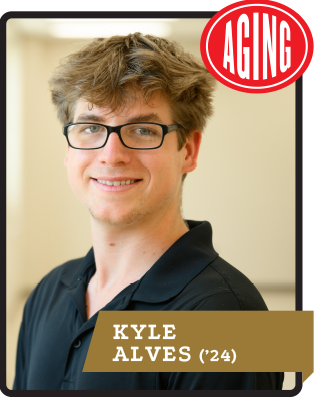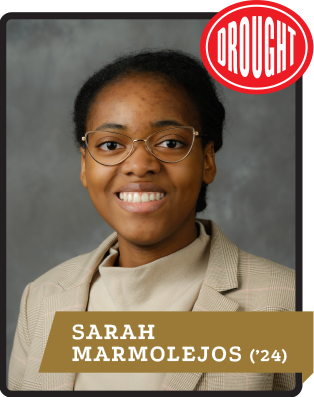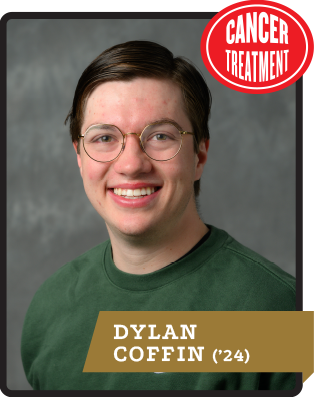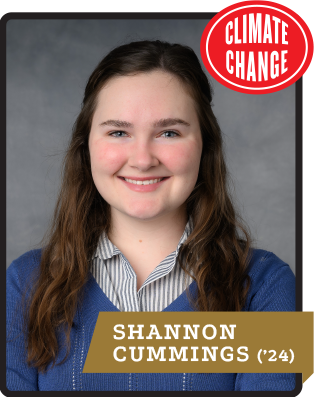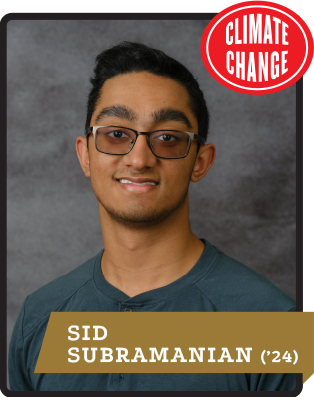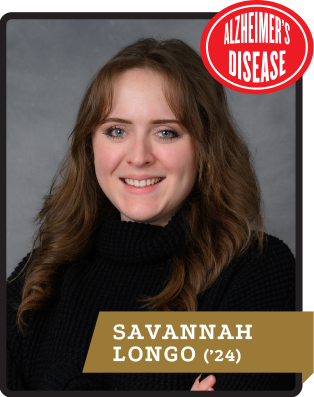Chasing the Complex Problems of Our Day

Every year, Wake Forest undergraduates have the opportunity to spend their summer months with a faculty mentor researching and making advances on some of the most challenging questions of our day. This summer, they studied the droughts and wildfires that have plagued parts of the United States, Canada and the globe. They explored the progression of aging. They faced the terrifying disease of cancer. They investigated the effects of climate change. And they stepped into the devastating world of Alzheimer’s disease.
For nearly 20 years, the Undergraduate Research and Creative Activities Center (URECA) has promoted and celebrated mentored scholarship. It is a hallmark of the Wake Forest experience – students and faculty, side by side, working to
develop solutions to serious questions in an effort to better the world around them. Here’s a look at just some of the challenges our undergraduates tackled this year.
Kyle Alves (’24)
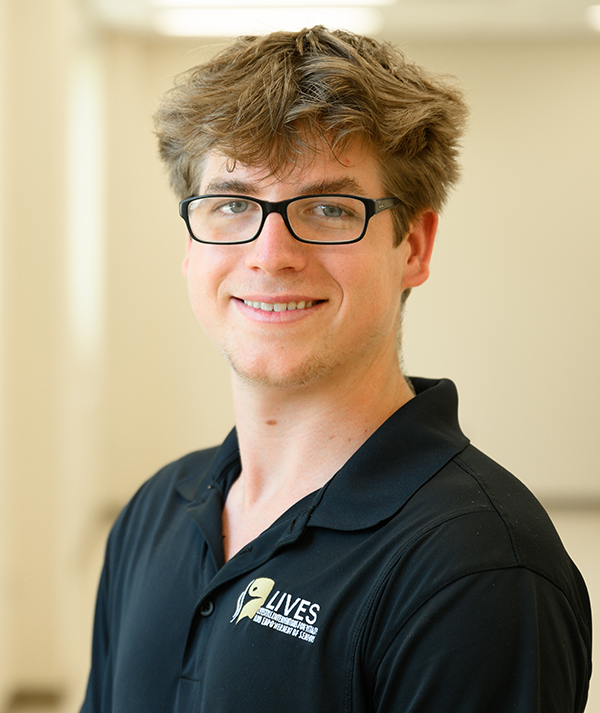

Hometown: Palm Coast, FL
Major: Health and Exercise Science
Faculty Mentor: Lindsay Comstock-Ferguson, Chemistry
Major Scholarships: Watkins-Richardson Memorial Fund
Topic: Feasibility of testing the impact of testing particular physical activities on cognitive and physical functioning of older adults
To the layman, High-Intensity Interval Resistance Training (HIIRT) sounds like something only NFL players should try. In truth, HIIRT is not painful. And Kyle Alves hopes you give it a shot one day.
In 2023, Alves earned a summer grant to help with HIIRT, part of an ongoing Health and Exercise Science (HES) initiative studying the benefits of exercise in older adults. The hope is that research will demonstrate a positive link between this type of exercise and
improved cognition.
It’s a labor of pride for Alves, whose grandfather is a neurologist specializing in Alzheimer’s Disease study and treatment. With a neuroscience minor supplementing his HES major, Alves intends to
go to medical school and follow his family path.
Sarah Marmolejos (’24)
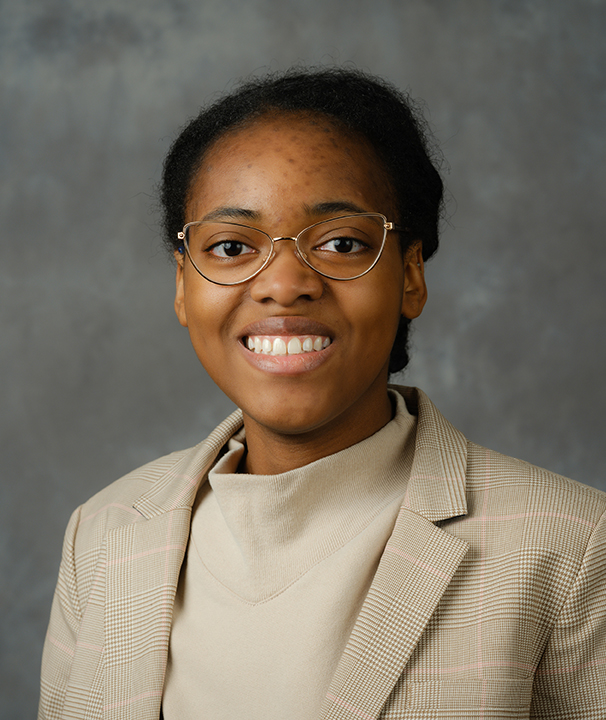

Hometown: Statesville, NC
Major: Engineering
Faculty Mentor: Lauren Lowman, Engineering
Major Scholarships: Kulynych-Story Family Fund; Norcross Family Fund for Magnolia Scholars
Topic: Ways in which drought is measured and predicted
A program in high school transported Sarah Marmolejos’ curiosity from the Earth’s surface to its atmosphere. The opportunity to work in Dr. Lauren Lowman’s Wake Forest engineering lab focused that interest on global drought and one particular measurement of it: Vapor Pressure Deficit (VPD), which is similar to relative humidity.
As Marmolejos began transforming and analyzing large volumes of data in that lab, she determined that some VPD readings in certain regions and climates – Arizona and New Mexico – weren’t always reliable. In the process, the team worked with two international organizations to get better data.
Data science melded with environmental science and engineering. Marmolejos is now driven to helping the planet by understanding how to maximize efficiency in how vital topics are studied and reported.
Dylan Coffin (’24)


Hometown: Cedar Grove, NJ
Major: Medicinal Chemistry and Drug Discovery
Faculty Mentor: Ulrich Bierbach, Chemistry
Major Scholarships: Wake Forest Heritage Scholarship; Joe and Sue Newhall Scholarship; Dr. James Barry Douglas Palmer Scholarship Fund
Topic: Identifying which drugs are worthy of further testing as potential cancer treatments
Dylan Coffin isn’t promising to cure cancer by himself. He just wants to be part of the process, and Wake Forest’s program in medicinal chemistry and drug discovery has been a rewarding point of entry to the fight.
An undergraduate leader in Dr. Ulrich Bierbach’s lab, Coffin has worked to help determine which chemical compounds seem most effective in killing cancer cells. He has presented his findings to the American Cancer Society’s Southeastern regional conference and is confident that his successors in Dr. Bierbach’s group will continue the process.
“We have been able to identify compounds we’d like to emphasize further, and we have been able to test them on cancer cells and get meaningful data,” Coffin said. “There’s no straightforward solution to it, but I know that every little piece of data I collect is important to a bigger picture in solving a problem.”
Shannon Cummings (’24)


Hometown: Huntingtown, MD
Major: Anthropology
Faculty Mentor: Paul Thacker, Anthropology
Major Scholarships: Cpl. Benny Gray Cockerham III Memorial Fund; Yellow Ribbon Initiative Fund; Wilmer D. Sanders Scholarship
Topic: Impact of vehicle emissions on local areas and neighborhoods
We have all heard about emissions from cars and their impact on the air. Ever wonder what happens to trees as cars zip past them? That’s OK. Shannon Cummings has.
First, she developed a methodology for evaluating impact of vehicular emissions on Wake Forest’s campus trees. That became an Undergraduate Research Day presentation, but it didn’t stop there.
Cummings then wondered if these principles could be applied more broadly – to help determine which areas of a larger community are more exposed to immediate harm and the long-term health outcomes that harm portends. Her preliminary findings in Winston-Salem suggest a correlation between an area’s demographics and the extent of its emission-pollution exposure.
Sid Subramanian (’24)
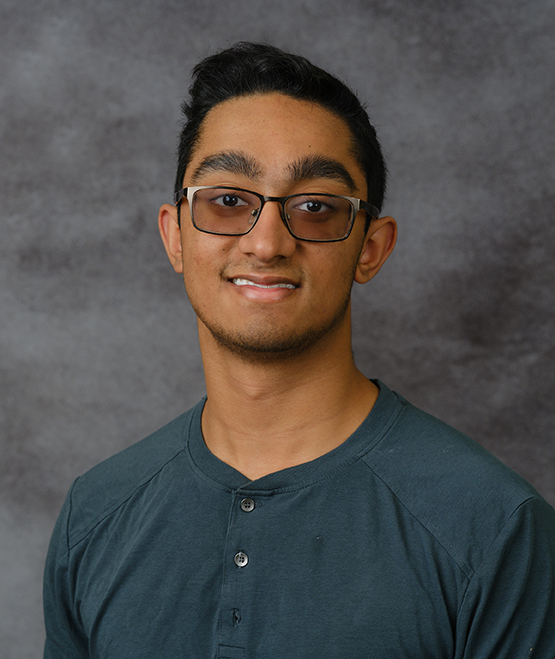

Hometown: Lewisville, NC
Major: Biochemistry and Molecular Biology; Spanish
Faculty Mentor: Michael Anderson, Biology; Arjun Potter, Biology
Major Scholarships: Stamps Leadership Scholarship Award; Porter B. Byrum Scholarship
Topic: Protecting African biodiversity by studying differences in drought resistance across species of trees
Check out any photo gallery of an African savannah and you’ll see Acacia trees. Sid Subramanian wasn’t content to peruse pretty pictures. He wanted to know why the trees mattered, and he went all the way to Tanzania to satisfy his curiosity and start a larger process.
In a research fellowship made possible by his Stamps Scholarship award, Subramanian investigated why some Acacia species tolerate drought better than others. The more researchers grasp these differences, the more they’ll be able to tailor and target their conservation efforts to help the planet.
Along the way, Subramanian taught Tanzanian students how certain pieces of ecological research equipment worked, and he learned a new language. Yes, Sid Subramanian speaks Swahili.
Savannah Longo (’24)
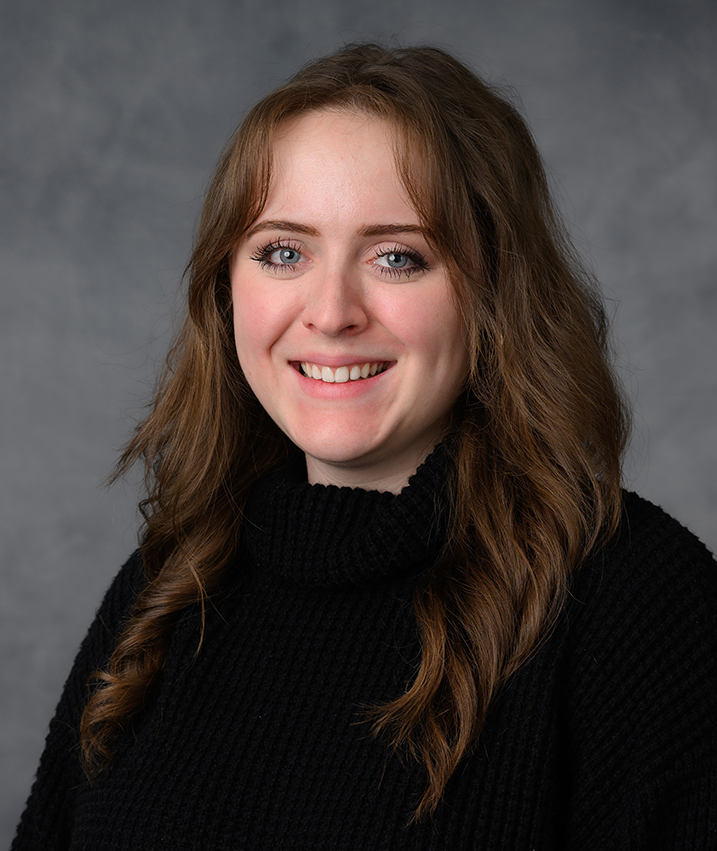

Hometown: Connelly Springs, NC
Major: Health and Exercise Science
Faculty Mentor: Osvaldo Delbono, Medical School
Major Scholarships: Julius Harshaw Corpening and Julius Shakespeare Corpening Scholarship; Saddye Stephenson and Benjamin Louis Sykes Scholarship; John William Slate, M.D. Scholarship; Lewis Reed Gaskin Scholarship
Topic: Potential relationship between loss of muscle mass and Alzheimer’s Disease
Savannah Longo didn’t need a year to figure out what she wanted to study at Wake Forest. Her grandfather had passed away before his time, at age 74, after suffering a broken leg as a firefighter and experiencing Alzheimer’s Disease thereafter.
“He was bedridden, his muscles declined and his cognitive decline accelerated,” she said.
This was going to be more difficult than pondering the whimsically benign conundrum of the chicken and the egg, but Longo went for it. Do cognition and neuromuscular symptoms go in tandem? Or does one precede the other?
Joining a Wake Forest School of Medicine lab as a freshman undergraduate, Longo quickly became a leader in the group. Over time, she and her colleagues have conducted research confirming findings that muscle loss is often a sign of eventual and exacerbated cognitive falloff.
As a result, the medical community is stepping up efforts to encourage a lifetime of exercise. And Longo, for her part, will attend physician assistant school and devote her career to that mission and other work like it.
Written by Rob Daniels | Photography by Lyndsie Schlink
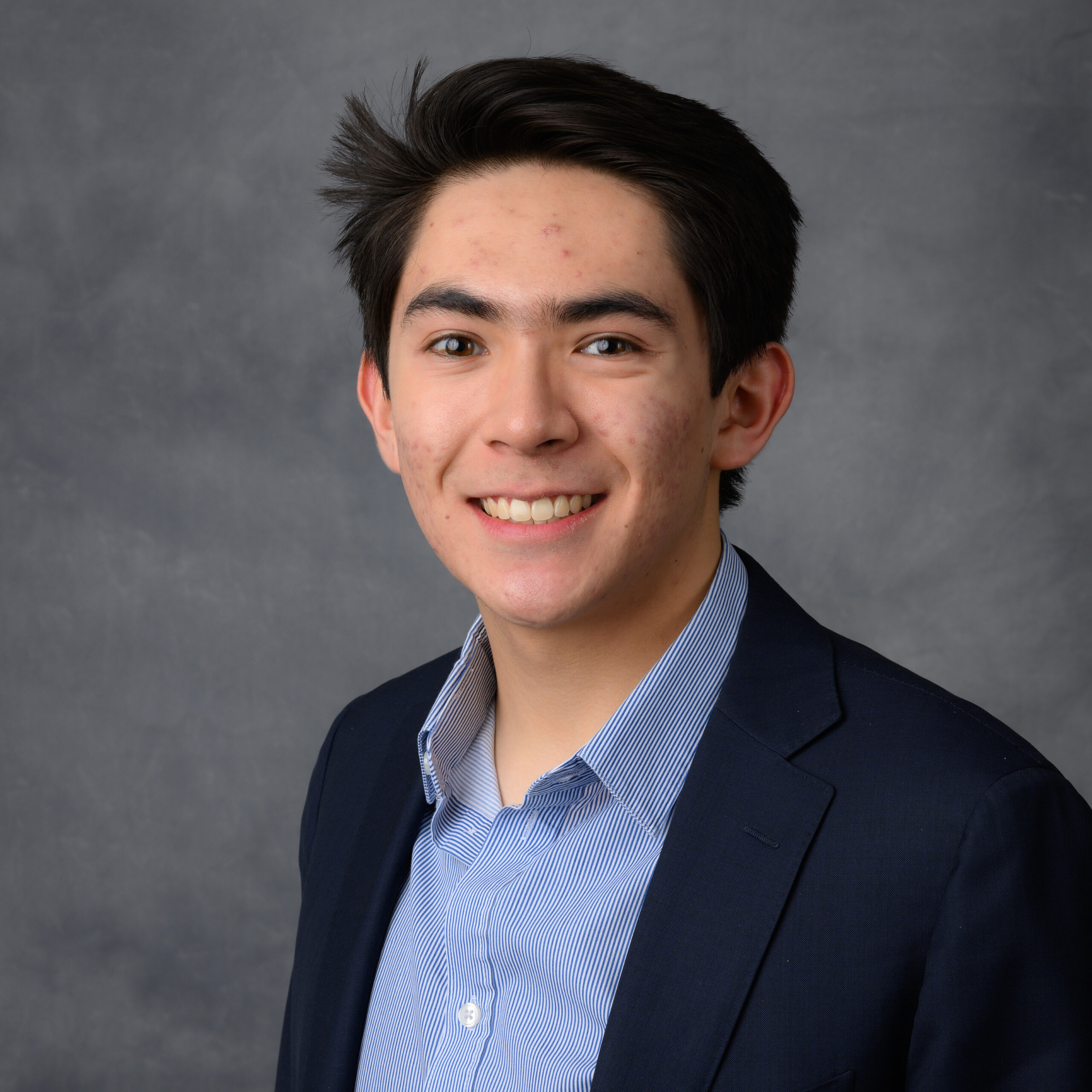
Boundless
Whether crossing borders or academic disciplines, Jae Canetti (’24) seeks solutions with a curious mind and grateful spirit

